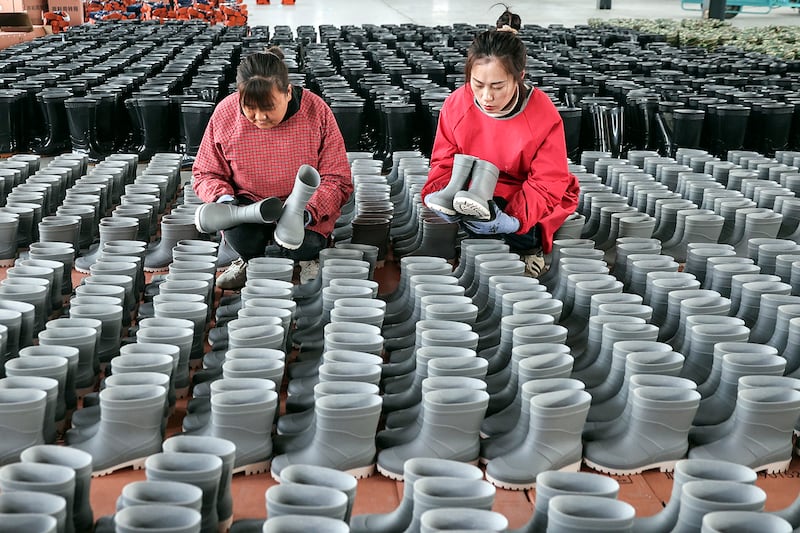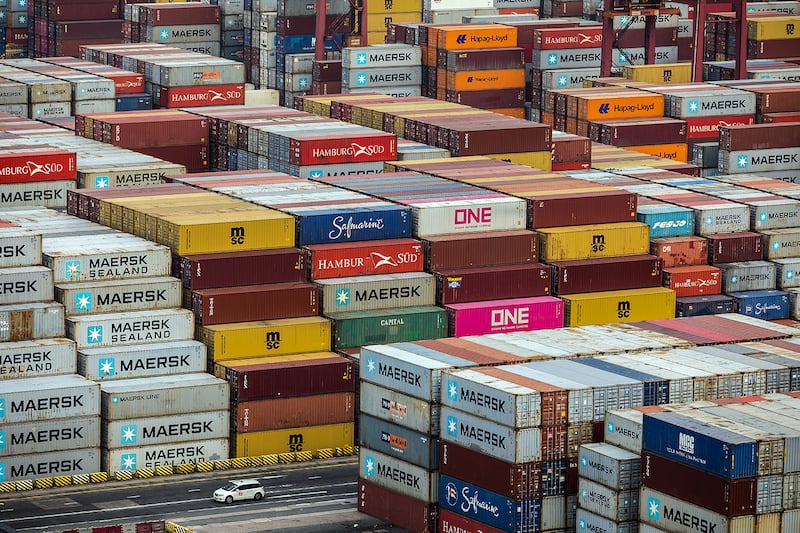New tariffs ordered by U.S. President Donald Trump on imports from China will also apply to goods from Hong Kong, according to a U.S. government document, indicating that Washington has erased the city’s status as a separate trading entity.
“Products of China and Hong Kong [other than exempted categories] and other than products for personal use included in accompanied baggage of persons arriving in the United States, shall be subject to an additional 10% ad valorem rate of duty,” according to Department of Homeland Security implementation guidelines for Trump’s Feb. 1, 2025 Executive Order.
The order imposes duties on imported goods “to address the synthetic opioid supply chain in the People’s Republic of China.”
The document cites a July 17, 2020, Executive Order from the previous Trump administration, which states that China’s ongoing political crackdown in the city represents “an unusual and extraordinary threat” because it “fundamentally undermine[s] Hong Kong’s autonomy.”
“It shall be the policy of the United States to suspend or eliminate different and preferential treatment for Hong Kong to the extent permitted by law and in the national security, foreign policy, and economic interest of the United States,” the order states, citing Hong Kong’s 2020 National Security Law.

“Under this law, the people of Hong Kong may face life in prison for what China considers to be acts of secession or subversion of state power—which may include acts like last year’s widespread anti-government protests,” the Order said, citing the lack of trial by jury and the possibility of secret prosecutions.
The new tariffs apply to all goods, even those with a value of less than US$800, but with exemptions for humanitarian and aid supplies.
RELATED STORIES
Tariff war escalates: China counters US with 15% duties, Google investigation
China condemns US tariffs, saying fentanyl is ‘America’s problem’
Beijing sees Trump presidency as ‘critical’ juncture for Sino-US ties
Experts said the move is likely a bid by the U.S. government to stop Chinese companies from evading tariffs by sending goods to Hong Kong and claiming that they originated there.
“The message is very clear,” Sunny Cheung, fellow for China studies at the Jamestown Foundation, told RFA Cantonese in a recent interview. “Hong Kong has always been China’s main transshipment port and unaffected by tariffs on Chinese goods.”
“Now, Hong Kong is being included [in those tariffs], which can be seen as an attempt to plug a loophole and send a tougher message,” Cheung said. “It will have a greater deterrent effect on China.”

He said the Trump administration is keenly aware of indirect ways in which China gets what it wants, citing the recent concern in Washington over the acquisition of key strategic port facilities along the Panama Canal by Hong Kong billionaire Li Ka-shing’s CK Hutchison.
Cheung said currently the tariffs only apply to goods produced in China or Hong Kong, and had stopped short of applying to goods shipped through Hong Kong.
“That would be a more nuclear-level attack,” Cheung said.
While the balance of trade has fluctuated over the years, the United States has always been in the top 10 markets for goods exported from Hong Kong, which topped US$5.9 billion for the whole of last year.
Meanwhile the Hong Kong Post said packages and parcels to the United States were suspended with effect from Feb. 5, although services for postal items containing documents only will be unaffected.
“As advised by the postal administration of the United States, Hongkong Post shall not dispatch any postal items containing goods destined to the United States with immediate effect, unless a “formal entry” has been completely and accurately filed with the United States Customs and Border Protection in accordance with United States law,” the postal service said in a statement.
It said postal items containing goods which entered into the United States on or after Feb. 4, 2025, will be returned to Hong Kong.
A “formal entry” must be made via a customs broker, and requires necessary import documents and payment of duties, it said.
Translated by Luisetta Mudie.
